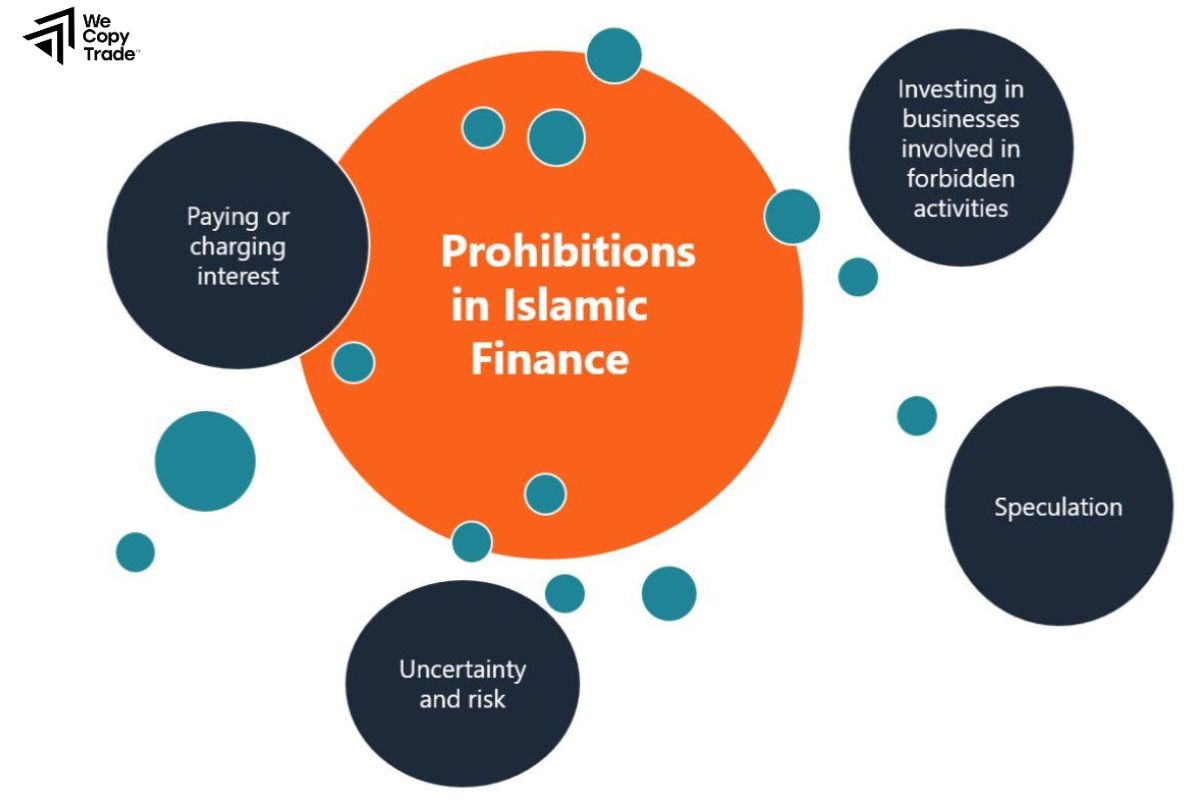Prop Firm Trading Halal is a growing area of interest for Muslim traders seeking to align their investment strategies with Islamic principles. As more prop trading firms offer Sharia-compliant options, it’s essential to understand how these firms operate within the bounds of Halal trading. Whether you’re new to proprietary trading or looking to switch to a Halal-compliant firm, this guide will help you navigate the options available while ensuring your trading activities adhere to Islamic financial laws.
What is Prop Firm Trading?

Prop firm trading refers to a form of trading where a proprietary trading firm provides traders with capital to trade financial markets such as stocks, forex, or futures. In this model, traders use the firm’s capital instead of their own, and in return, they share a portion of the profits with the firm.
Besides, Prop Firm Trading Halal trading is attractive to traders who have the skills and strategies to be successful but lack the necessary capital to trade at a higher level. It’s a win-win model: the firm provides capital and earns a portion of the profits, while the trader gets to trade with larger sums of money and potentially earn more than they could on their own.
Are Prop Firms Halal?

To determine if Prop Firm Trading Halal or Haram under Islamic finance principles, we need to analyze them against key Islamic finance principles, specifically regarding interest and excessive risk.
See more:
- How to apply for a real estate prop firm certificate extremely reputable
- How Do Prop Firms Make Money? An In-Depth Look at Revenue
- What is High-Frequency Trading? How it works and its applications in cryptocurrency trading
Islamic Finance Principles
- Riba: Any guaranteed interest on loaned money is considered Haram. Islam forbids earning income from interest.
- Gharar: Transactions involving excessive uncertainty or risk are considered Haram. Contracts with uncertain outcomes or high speculation are avoided.
- Mudarabah: An Islamic finance contract where one party provides capital and the other provides expertise. Profits are shared according to a pre-agreed ratio, while losses are borne by the capital provider.
- Musharakah: A partnership where all parties contribute capital and share profits and losses according to their investment.
Prop Firms and Islamic Finance Principles

- Interest: Prop firms typically do not involve interest in their operations. Instead, traders are provided capital and earn profits based on trading activities. The profit-sharing arrangement between the firm and the trader could align with the Mudarabah principle if structured properly.
- Excessive Risk: Prop trading involves speculative trading strategies, which may be seen as high-risk or uncertain. If the prop firm’s business model or the trading activities involve significant Gharar, it could be problematic from an Islamic perspective.
Examples of Prop Firms Considered Halal or Haram
- For Halal: Some Islamic scholars may consider companies to be Halal if they strictly adhere to Islamic finance principles, avoid interest and maintain acceptable levels of risk.
- For Haram: Companies that engage in highly speculative transactions or involve excessive profit or uncertainty may be considered Haram.
Common Questions About Prop Firm Trading and Halal Compliance
Can Muslims participate in prop firm trading?
Yes, Muslims can participate in prop firm trading, but they must ensure the trading aligns with Islamic principles, avoiding interest (riba) and unethical practices.
What should Muslims look for in a Halal-compliant prop firm?

Muslims seeking to engage with a Prop Firm Trading Halal should look for the following criteria to ensure Halal compliance:
- Sharia Compliance Certification: The prop firm should have certification from a recognized Sharia advisory board or scholars confirming that their trading practices and profit-sharing agreements comply with Islamic law.
- No Interest: Ensure that the Prop Firm Trading Halal does not engage in transactions that involve interest payments or charges, as this is prohibited in Islam.
- Ethical Investments: Prop Firm Trading Halal should avoid trading in haram (forbidden) assets or sectors, such as alcohol, gambling, and pork, which do not align with Islamic values.
- Transparent Profit Sharing: The profit-sharing arrangements should be clear, fair, and agreed upon by both parties, without involving any form of uncertainty or unfair advantage.
Is it possible to trade Forex or derivatives in a Sharia-compliant way?
Trading Forex and derivatives can be made Sharia-compliant if certain conditions are met:
- Avoid Interest: Ensure that the trading platform or broker does not charge or pay interest on trades or positions held overnight. Some brokers offer swap-free accounts to cater to Islamic traders.
- No Speculation: Avoid speculative trading that resembles gambling. Focus on trading strategies based on analysis and sound research rather than speculation.
- Clear Contracts: Ensure that all contracts are clear and free from ambiguity, adhering to the principles of fairness and transparency.
- Ethical Trading: Avoid trading in instruments that are considered haram or unethical according to Islamic principles.
How to Identify a Prop Firm Trading Halal
Identifying Prop Firm Trading Halal involves ensuring that the firm operates in accordance with Islamic finance principles. Here are some steps to identify a halal prop firm:

- Check for Shariah Compliance: Look for firms that have been audited or certified by a Shariah board or have a Shariah advisory council. This board ensures that the firm’s operations comply with Islamic finance principles.
- Review the Firm’s Trading Practices: Ensure that the firm’s trading activities do not involve interest-bearing transactions. Halal prop firms should use Islamic finance structures, such as profit-sharing or joint venture, rather than traditional interest-based financing.
- Understand the Investment Strategies: Prop Firm Trading Halal should avoid investments in industries or assets that are haram (forbidden) such as alcohol, gambling, or pork-related businesses. They should focus on Shariah-compliant investment opportunities.
- Examine the Fee Structure: Verify that the firm’s fee structure does not involve riba.
- Transparency and Reporting: A halal prop firm should be transparent about its operations, trading strategies, and financial reporting.
Conclusion
In conclusion, engaging in Prop Firm Trading Halal is entirely feasible for Muslim traders who carefully select firms and trading practices that comply with Islamic principles. Whether trading Forex or derivatives, it is crucial to verify the firm’s compliance with Islamic law and consult financial experts to ensure that all aspects of trading align with Halal standards.
See now:











